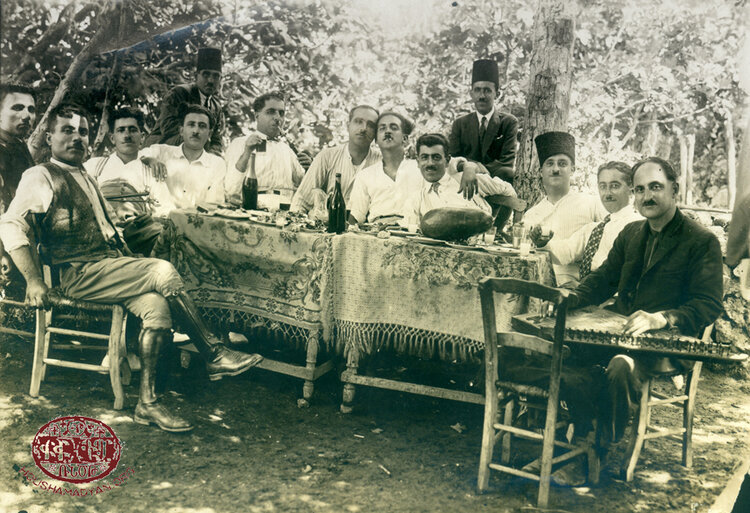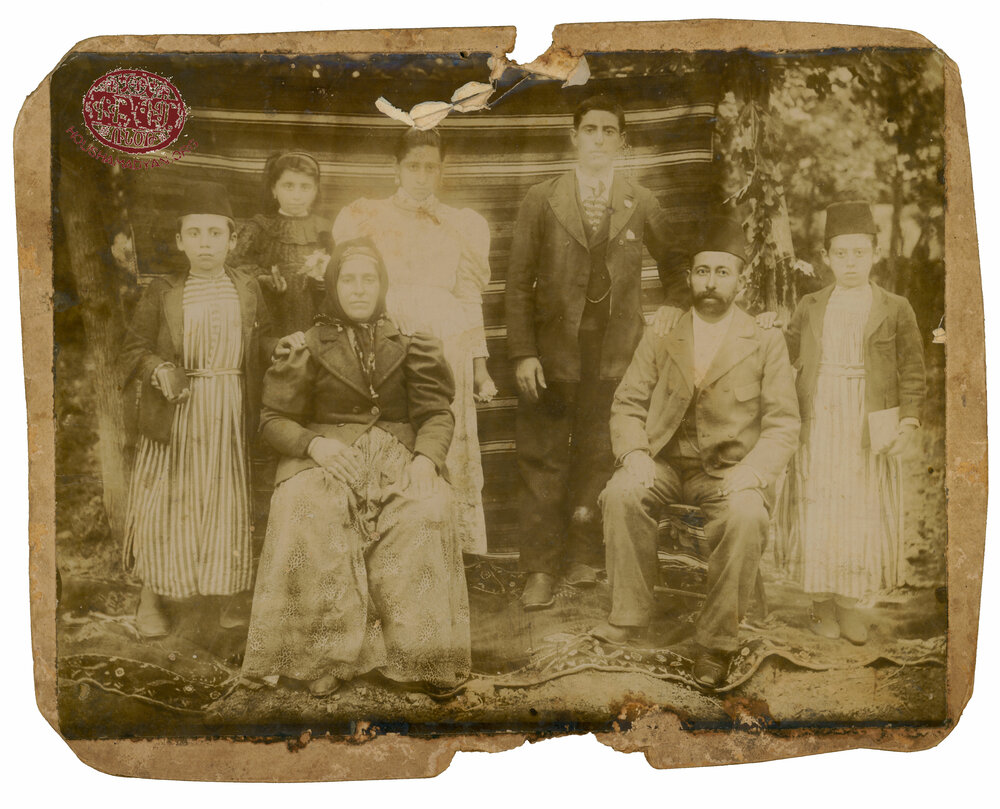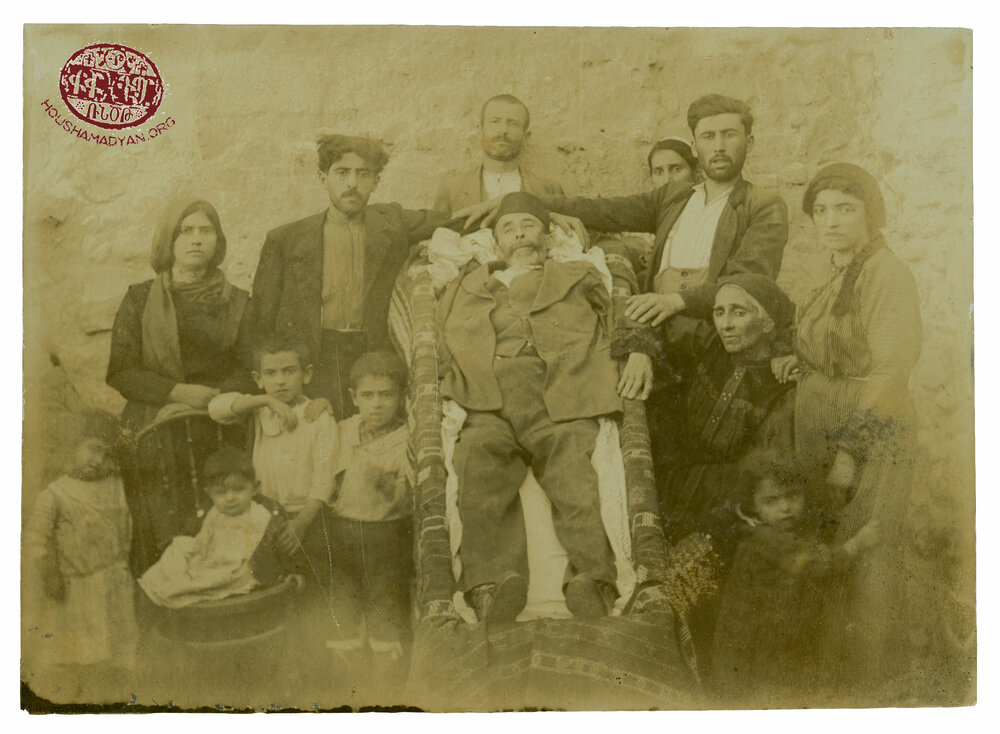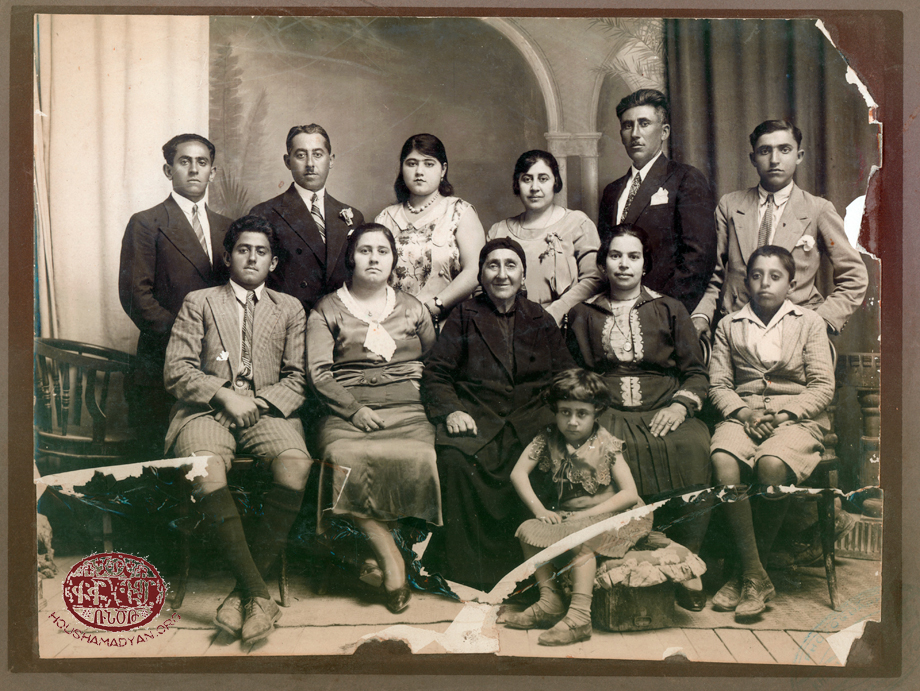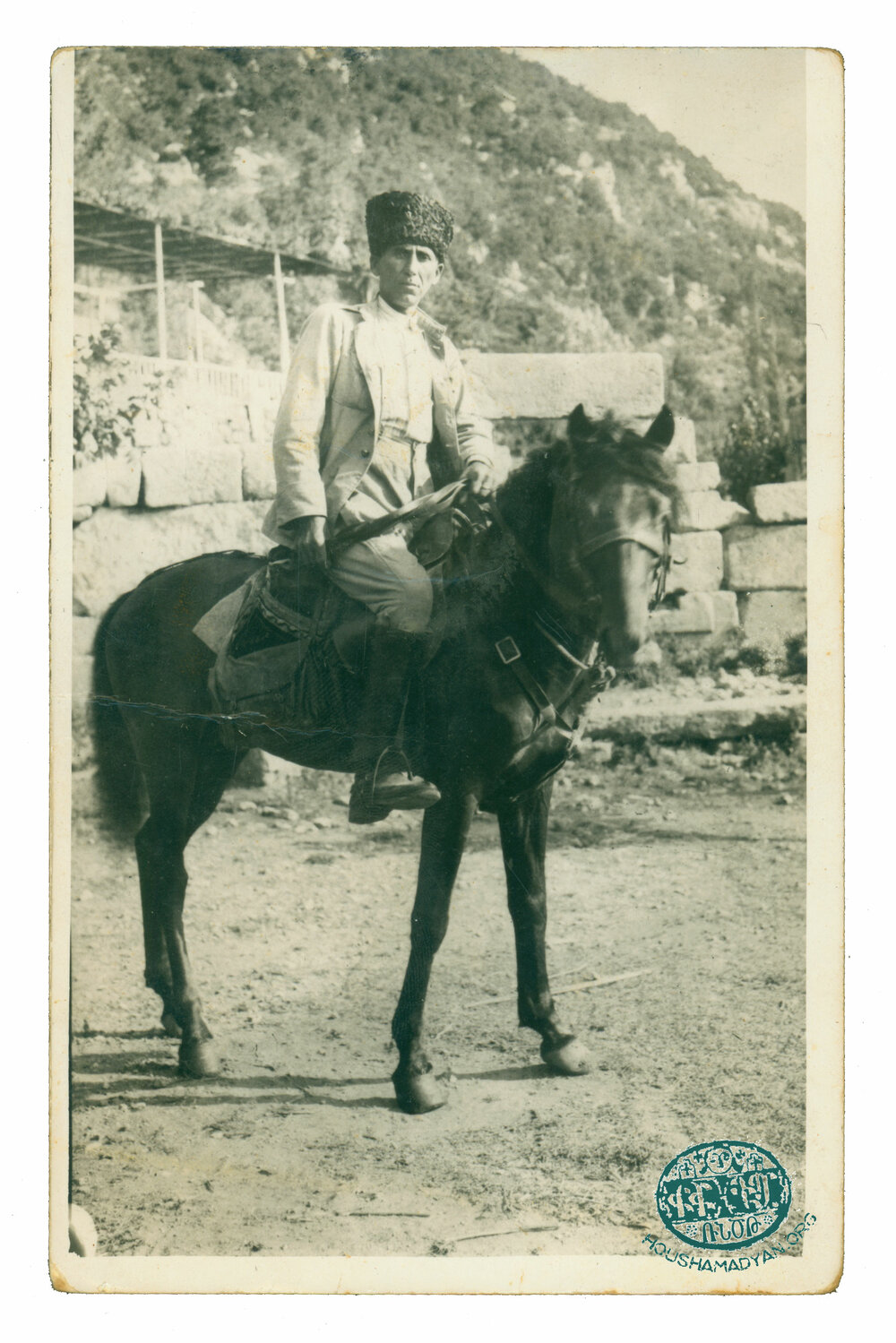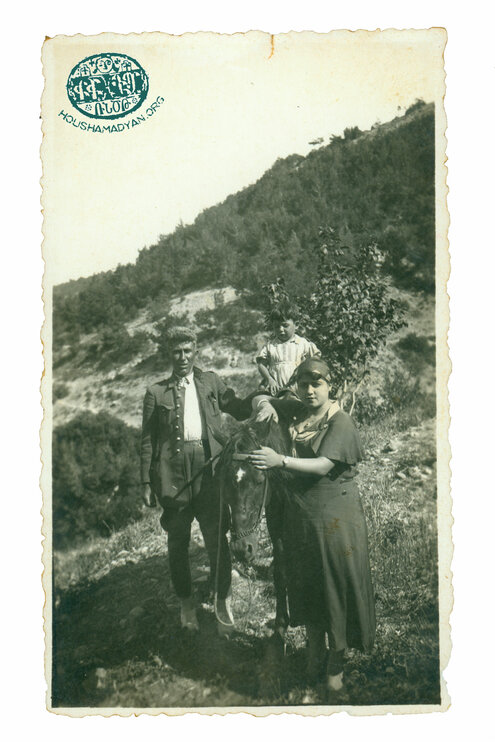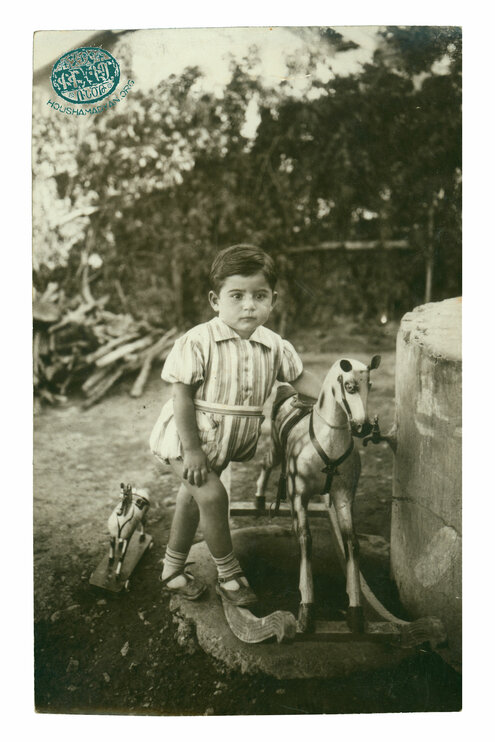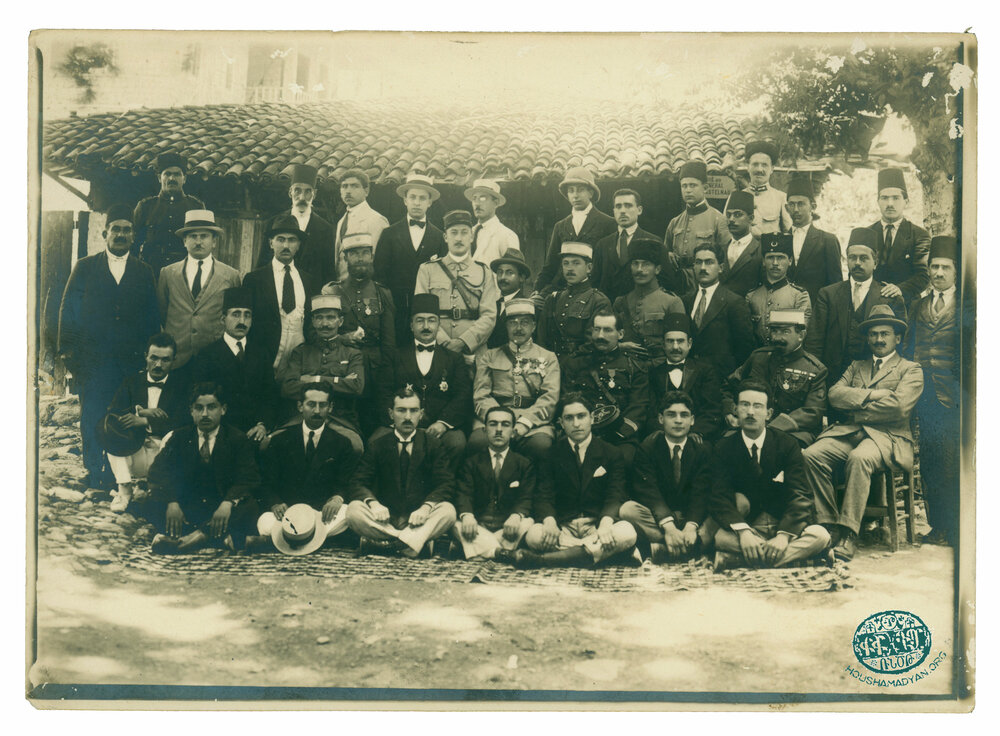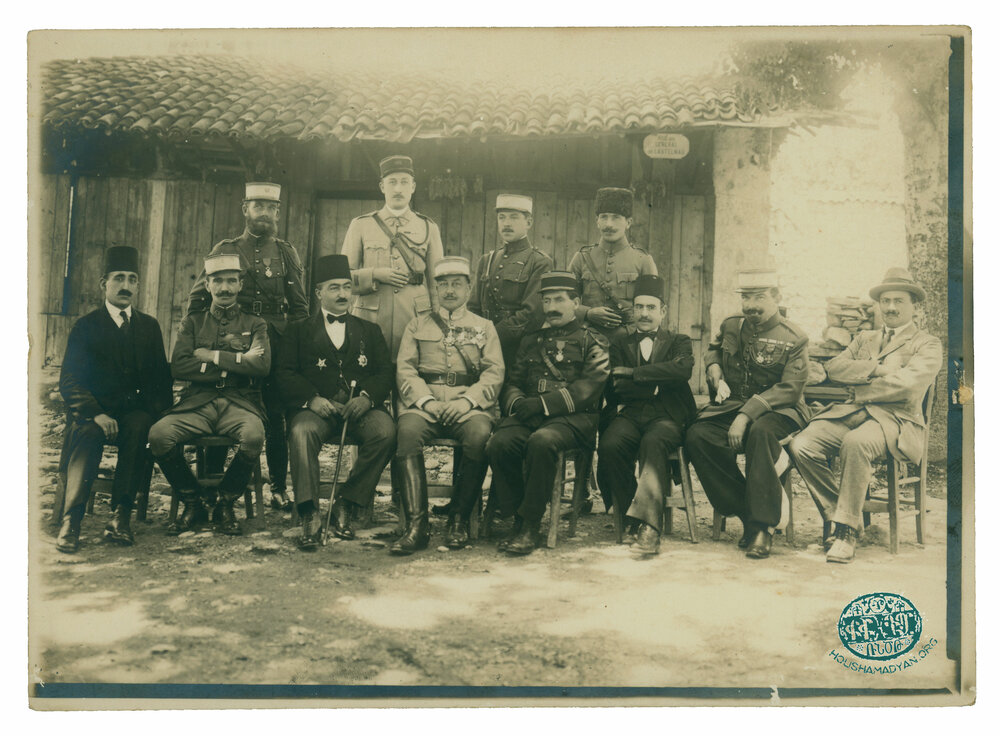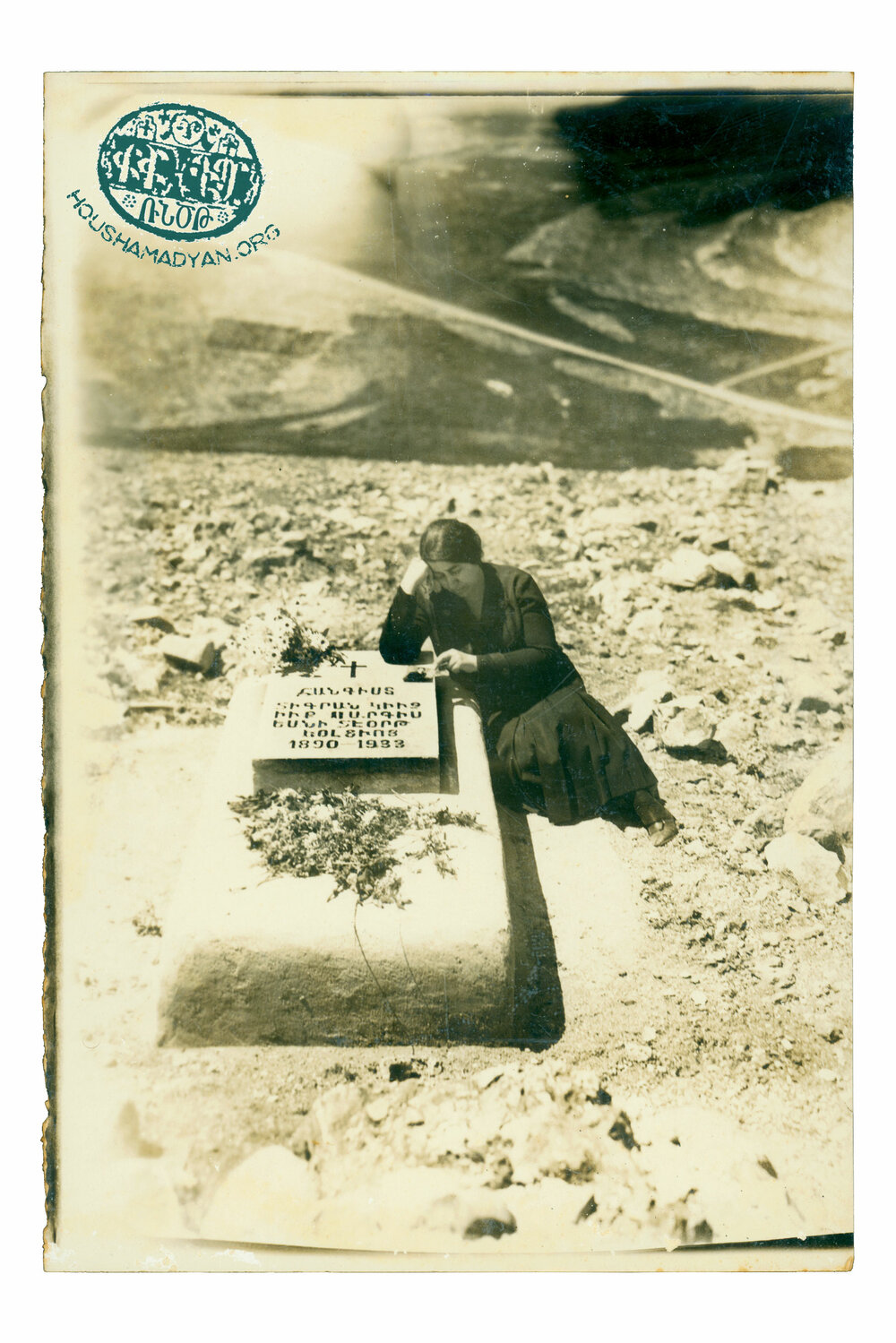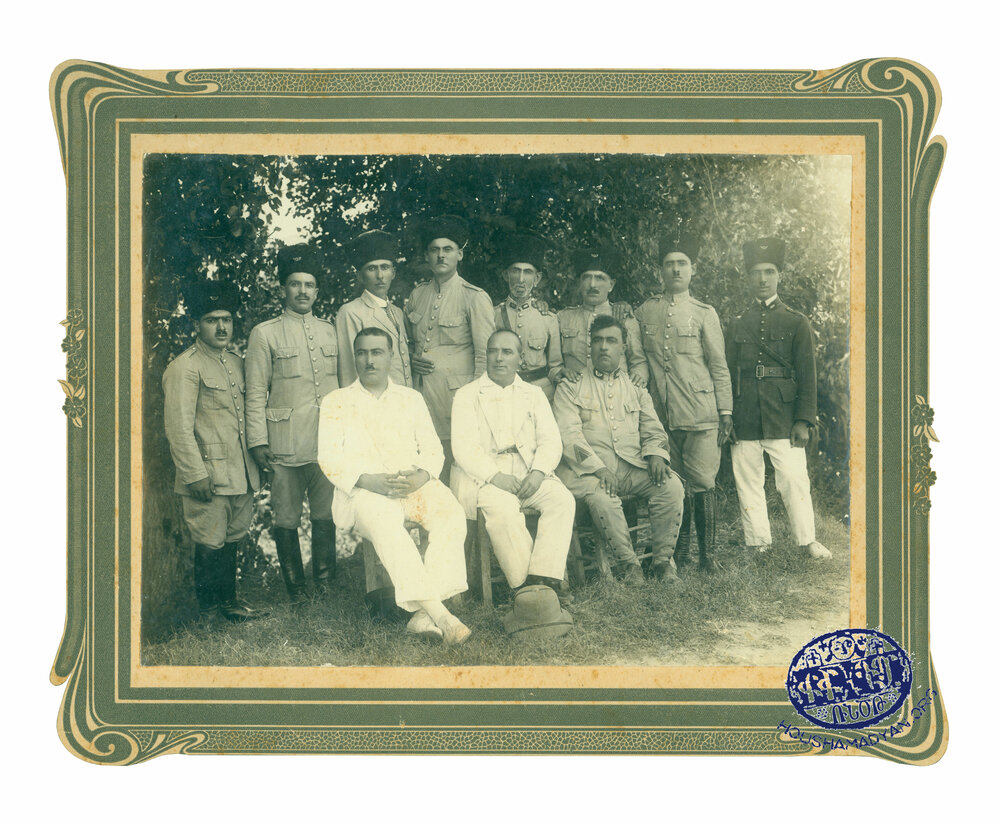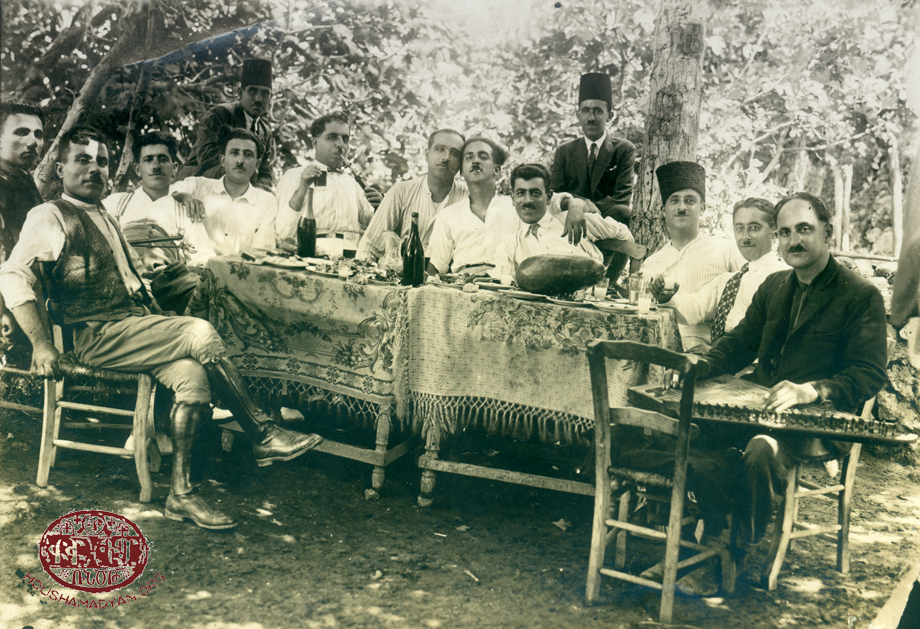Bedros Sahag Peltekian collection - Beirut, Lebanon

The photographs in this collection were given to us by Shoghig Peltekian, from Lebanon. The collection belongs to Shoghig's paternal side of the family, who were from the village of Özerli in the region of Dörtyol. In 1922, when the French army withdrew from the city leaving it under the rule of the Turkish government. During this time, the local Armenians also left the region and most of them settled in Antioch, which was part of Syria at the time. Shoghig's paternal grandparents also took this route, they settled in the city of Alexandrette (Iskenderun, present-day Hatay), which, until 1939, was part of the Syrian territory. In 1939, based on the agreement between France and Turkey, the entire sanjak (county) of Alexandrette was given to Turkey. Shoghig's paternal ancestors had already moved to and settled in Lebanon in 1938.

Salt (north of Amman, located in present-day Jordan), 1918. This period corresponds to the time when the Genocide was perpetrated while the Peltekian family, like many other families from Dörtyol, was exiled to this region. The photograph shows Bedros Peltekian, who died while in exile, lying in a casket, with family members surrounding him. The woman seated to the right of the casket with her hair covered is Markrid Peltekian, the deceased's widow. Standing behind Markrid is her son Sahag with his hands extended on his father's casket. Standing to the right of Markrid is Sahag’s first wife Noyemi. The child hugging his mother's legs is Asadour, Bedros and Noyemi's eldest son.

The Peltekian family. Photograph by the Khatcherian brothers, Antioch.
Standing from left to right are: Yervant, Khatchig, Alice, Siranoush, Sahag and Asadour. Seated from left to right are: Pierre, Zarouhi, Noyemzar and Sdepan. The little girl sitting in the very first row is Shake.
Pierre, Alice and Khatchig are the children of Sahag Peltekian's older brother Panos and his wife Zarouhi. Khatchig is also Sahag's brother, and Siranoush is their sister. Shake and Asadour are Sahag and Noyemzar's children.

Sahag Peltekian on his horse. Sahag died in 1934, in Mousa Ler. Shoghig Peltekian informed us that her grandfather is actually buried in his native Dörtyol, which is quite an unusual phenomenon, taking into consideration that during the time of his death, the whole region was already part of the Republic of Turkey.


Dörtyol, 1920. From the beginning of 1919 until the beginning of 1922, the region of Cilicia was under french rule and was governed by a french regime. We see representatives of the french army with prominent local Armenians in this photograph, however the names of the people in the photograph are unknown.



Dörtyol Armenians at a festivity, 1933. The photo was probably taken in the region of Alexandrette (Iskenderun, present-day Hatay), even though the original notes Dörtyol. We know that the town was emptied of Armenians in 1922. The second person from the right (sitting next to the person playing the kanun, wearing a tie and holding a raki glass in his hand) is Khachig Bedros Peltekian, Sahag and Markrid's son, who was a lawyer and served in Syria in the french administration.
